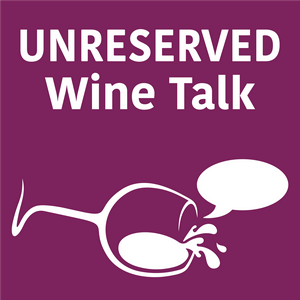How can a single bottle of wine completely change your understanding of what wine can be? What makes a wine so remarkable that you can almost taste it again in your memory decades later? Why are people drawn to tasting notes even when words can never fully capture the experience of tasting and smelling wine?
In this episode of the Unreserved Wine Talk podcast, I'm chatting with Neal Hulkower, a PhD rocket scientist, who has just published his first book, Grape Explications.
You can find the wines we discussed at https://www.nataliemaclean.com/winepicks.
Giveaway
Three of you are going to win a copy of Neal Hulkower's terrific new book, Grape Explications. To qualify, all you have to do is email me at
[email protected] and let me know that you've posted a review of the podcast. I'll choose three people randomly from those who contact me. Good luck!
Highlights
What surprised Neal most when he reread five decades of his own wine writing while compiling Grape Explications?
How has his palate, perspective, and choice of writing topics evolved throughout his life?
Why did self-publishing matter so much to Neal?
How did Neal's first experience with wine shape his early expectations of wine?
How did tasting classified growth Bordeaux as a college student completely reset his understanding of what wine could be?
How did the Duncan Hines Memorial Bon Vivant Fellowship turn academic milestones into structured wine rituals?
Why did Neal choose a 1959 Steinberger Trockenbeerenauslese to mark his PhD, and what made that bottle unforgettable?
How did keeping meticulous notes help Neal develop his palate and his writing voice?
What pushed him to leave academia for industry?
Which emerging wine regions was Neal exposed to through moving across the US?
What changed when Neal left a high-level technology career to become a freelance wine writer?
How has Neal merged his two passions, wine and mathematics?
About Neal Hulkower
Neal D. Hulkower is an applied mathematician and freelance writer living in McMinnville, Oregon. His first contributions to a wine publication appeared in the early 1970s. Since 2009, he has been writing regularly about wine-related topics for academic, trade, and popular publications including the Journal of Wine Research, the Journal of Wine Economics, American Wine Society Wine Journal, Oregon Wine Press, Practical Winery & Vineyard, Wine Press Northwest, the Slow Wine Guide USA, and The World of Fine Wine and on wine-searcher.com, trinkmag.com, and guildsomm.com. Neal is a member of the American Wine Society, the American Association of Wine Economists, and the Circle of Wine Writers. His first book, Grape Explications, was released in 2025. He can occasionally be found pouring some of Oregon's finest in a tasting room at the top of the Dundee Hills.
To learn more, visit https://www.nataliemaclean.com/376.


